“It is easier to build strong children than to repair broken men.”
–Frederick Douglass
Lifelong Learners
Development and Encouragement
Articles
- Neuroscience and Education: How Early Brain Development Affects School: Research on young children reveals their extraordinary ability to learn. Early learning prepares children to succeed in school and is a key factor in enhancing education worldwide.
Books
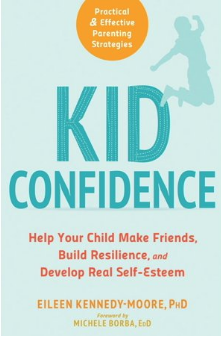
Kid Confidence
Letting go of the concern “am I good enough” and reducing self-focused thoughts are critical for building self-confidence, according to clinical psychologist and author, Eileen Kennedy-Moore. She suggests that supporting kids as they develop relationships, habits of perseverance, skills for learning, and their own value and voice are the key to building authentic self-confidence. Kennedy-Moore’s book, Kid Confidence: Help Your Child Make Friends, Build Resilience, and Develop Real Self-Esteem brings parents scientifically backed, clear, and actionable practices for supporting self-esteem in children ages 6-12.
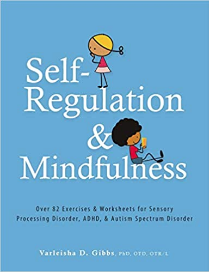
Self-Regulation and Mindfulness: Over 82 Exercises & Worksheets for Sensory Processing Disorder, ADHD, & Autism Spectrum Disorder
Based on the latest research in neuroscience, Self-Regulation & Mindfulness provides highly practical, kid friendly lessons to teach therapists, parents, educators and children about their brain and body, so they can build the needed skills to self-regulate.
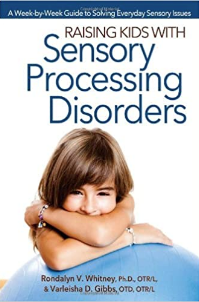
Raising Kids with Sensory Processing Disorders: A Week-by-Week Guide to Solving Everyday Sensory Issues
Whether it’s having to remove tags from clothing or using special dimmed lighting when they study, kids with sensory disorders or special sensory needs often need adaptations in their everyday lives in order to find success in school and beyond. Taking a look at the most common sensory issues kids face, Raising Kids with Sensory Processing Disorders offers a compilation of unique, proven strategies parents can implement to help their children move beyond their sensory needs and increase their performance on tasks like homework, field trips, transitions between activities, bedtime, holidays, and interactions with friends. Written by a parent of two children with very different sensory needs, the book shows parents how to characterize their child’s sensory issues into one of several profiles that they can then use to find the best adaptations and changes to their everyday routines.
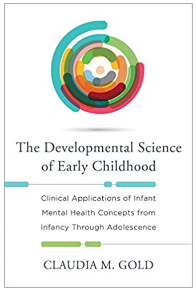
The Developmental Science of Early Childhood: Clinical Applications of Infant Mental Health Concepts From Infancy Through Adolescence
The field commonly known as “infant mental health” integrates current research from developmental psychology, genetics, and neuroscience to form a model of prevention, intervention, and treatment well beyond infancy. This book presents the core concepts of this vibrant field and applies them to common childhood problems, from attention deficits to anxiety and sleep disorders.
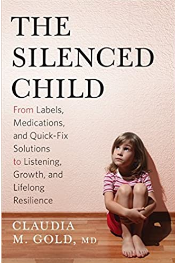
The Silenced Child: From Labels, Medications, and Quick-Fix Solutions to Listening, Growth, and Lifelong Resilience
Are children and adolescents being silenced and their growth stunted in the age of quick diagnoses and overmedication? In The Silenced Child, Dr. Claudia Gold shows the tremendous power of listening in parent/child and doctor/patient relationships. Through vivid stories, perceptive insights, and new research, she shows the way children grow from these relationships and how being heard actually changes their brains. She helps both parents and caregivers make the time and space for listening.
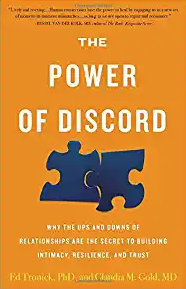
The Power of Discord: Why the Ups and Downs of Relationships Are the Secret to Building Intimacy, Resilience, and Trust
You might think that perfect harmony is the defining characteristic of healthy relationships, but the truth is that human interactions are messy, complicated, and confusing. And according to renowned psychologist Ed Tronick and pediatrician Claudia Gold, that is not only okay, it is actually crucial to our social and emotional development. In The Power of Discord they show how working through the inevitable dissonance of human connection is the path to better relationships with romantic partners, family, friends, and colleagues.
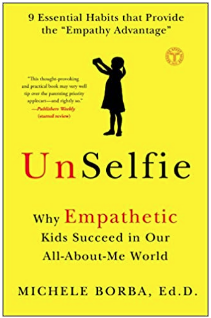
UnSelfie: Why Empathetic Kids Succeed in Our All-About-Me World
Teens today are forty percent less empathetic than they were thirty years ago. Why is a lack of empathy—which goes hand-in-hand with the self-absorption epidemic Dr. Michele Borba calls the Selfie Syndrome—so dangerous? First, it hurts kids’ academic performance and leads to bullying behaviors. Also, it correlates with more cheating and less resilience. And once children grow up, a lack of empathy hampers their ability to collaborate, innovate, and problem-solve—all must-have skills for the global economy.
In UnSelfie Dr. Borba pinpoints the forces causing the empathy crisis and shares a revolutionary, researched-based, nine-step plan for reversing it.
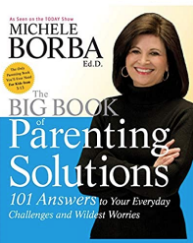
The Big Book of Parenting Solutions: 101 Answers to Your Everyday Challenges and Wildest Worries
In this down-to-earth guide, parenting expert Michele Borba offers advice for dealing with children’s difficult behavior and hot button issues including biting, temper tantrums, cheating, bad friends, inappropriate clothing, sex, drugs, peer pressure, and much more. Written for parents of kids age 3-13, this book offers easy-to-implement advice for the most important challenges parents face with kids from toddlers to tweens.
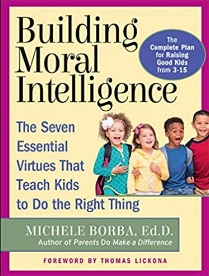
Building Moral Intelligence: The Seven Essential Virtues that Teach Kids to Do the Right Thing
Gain a new understanding of moral intelligence, and a step-by-step program for its achievement from bestselling author, Michele Borba. In this indispensable book for parents, Borba has created a new break-through in conceptualizing and teaching virtue, character and values under the auspices of a measurable capacity — Moral Intelligence. This book confronts the front-page crisis we now face in our country regarding youth violence, alienation, self-destructive behavior, cold-heartedness, lack of compassion, insensitivity, intolerance and the break down of values. The author provides a new way to understand, evaluate and inspire our kids with the seven essential virtues which comprise moral intelligence.
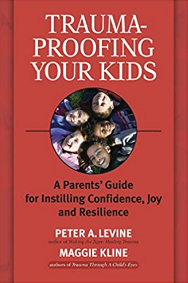
Trauma-Proofing Your Kids: A Parents' Guide for Instilling Confidence, Joy and Resilience
In addition to arming parents with priceless protective strategies, best-selling authors Dr. Peter A. Levine and Maggie Kline offer an antidote to trauma and a recipe for creating resilient kids no matter what misfortune has besieged them. Trauma-Proofing Your Kids is a treasure trove of simple-to-follow “stress-busting,” boundary-setting, sensory/motor-awareness activities that counteract trauma’s effect on a child’s body, mind and spirit. Including a chapter on how to navigate the inevitable difficulties that arise during the various ages and stages of development, this ground-breaking book simplifies an often mystifying and complex subject, empowering parents to raise truly confident and joyful kids despite stressful and turbulent times.
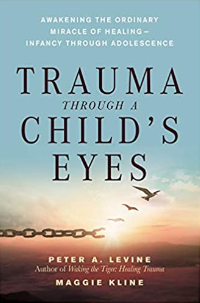
Trauma Through a Child's Eyes: Awakening the Ordinary Miracle of Healing
Trauma can result not only from catastrophic events such as abuse, violence, or loss of loved ones, but from natural disasters and everyday incidents like auto accidents, medical procedures, divorce, or even falling off a bicycle. At the core of this book is the understanding of how trauma is imprinted on the body, brain, and spirit—often resulting in anxiety, nightmares, depression, physical illnesses, addictions, hyperactivity, and aggression.
Rich with case studies and hands-on activities, Trauma Through a Child’s Eyes gives insight into children’s innate ability to rebound with the appropriate support, and provides their caregivers with tools to overcome and prevent trauma.
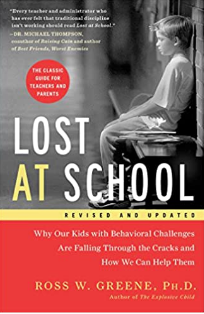
Lost at School: Why Our Kids with Behavioral Challenges are Falling Through the Cracks and How We Can Help Them
Relying on research from the neurosciences, Dr. Greene offers a new conceptual framework for understanding the difficulties of kids with behavioral challenges and explains why traditional discipline isn’t effective at addressing these difficulties. Emphasizing the revolutionarily simple and positive notion that kids do well if they can, he persuasively argues that kids with behavioral challenges are not attention-seeking, manipulative, limit-testing, coercive, or unmotivated, but that they lack the skills to behave adaptively. And when adults recognize the true factors underlying difficult behavior and teach kids the skills in increments they can handle, the results are astounding: The kids overcome their obstacles; the frustration of teachers, parents, and classmates diminishes; and the well-being and learning of all students are enhanced.
In Lost at School, Dr. Greene describes how his road-tested, evidence-based approach — called Collaborative Problem Solving — can help challenging kids at school.
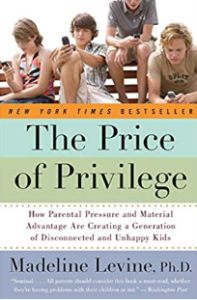
The Price of Privilege: How Parental Pressure And Material Advantage Are Creating A Generation Of Disconnected And Unhappy Kids
In this eye-opening, provocative, and essential book, clinical psychologist Madeline Levine explodes one child-rearing myth after another. With empathy and candor, she identifies toxic cultural influences and well-intentioned, but misguided, parenting practices that are detrimental to a child’s healthy self-development. Her thoughtful, practical advice provides solutions that will enable parents to help their emotionally troubled “star” child cultivate an authentic sense of self.
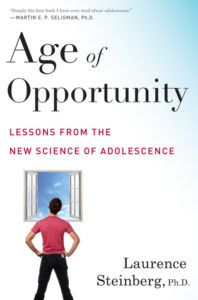
Age of Opportunity: Lessons from the New Science of Adolescence
Distinguished University Professor of Psychology at Temple University, Laurence Steinberg is one of the world’s leading experts on adolescence. In Age of Opportunity, Steinberg mines innovative research to explain how the plasticity of the adolescent brain, rivaling that of years 0 through 3, suggests new strategies for instilling self-control.
Adolescence now lasts longer than ever before. And as world-renowned expert on adolescent psychology Dr. Laurence Steinberg argues, this makes these years the key period in determining individuals’ life outcomes, demanding that we change the way we parent, educate, and understand young people.
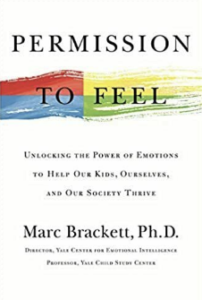
Permission to Feel: Unlocking the Power of Emotions to Help Our Kids, Ourselves, and our Society Thrive
How are you feeling? We ask this question often because our feelings are an important source of information about our internal lives, yet too often we do not ask or answer with sincerity. Marc Brackett, a Yale professor and Director of the Yale Center for Emotional Intelligence, argues that our emotions, though messy, make us human. Further, when we deny ourselves permission to feel, as we often do, we as individuals and a society suffer adverse consequences. In Permission to Feel: Unlocking the Power of Emotions to Help Our Kids, Ourselves, and our Society Thrive, Brackett draws on his extensive research expertise and personal experiences to teach skills for recognizing, understanding, labeling, expressing, and regulating emotions.